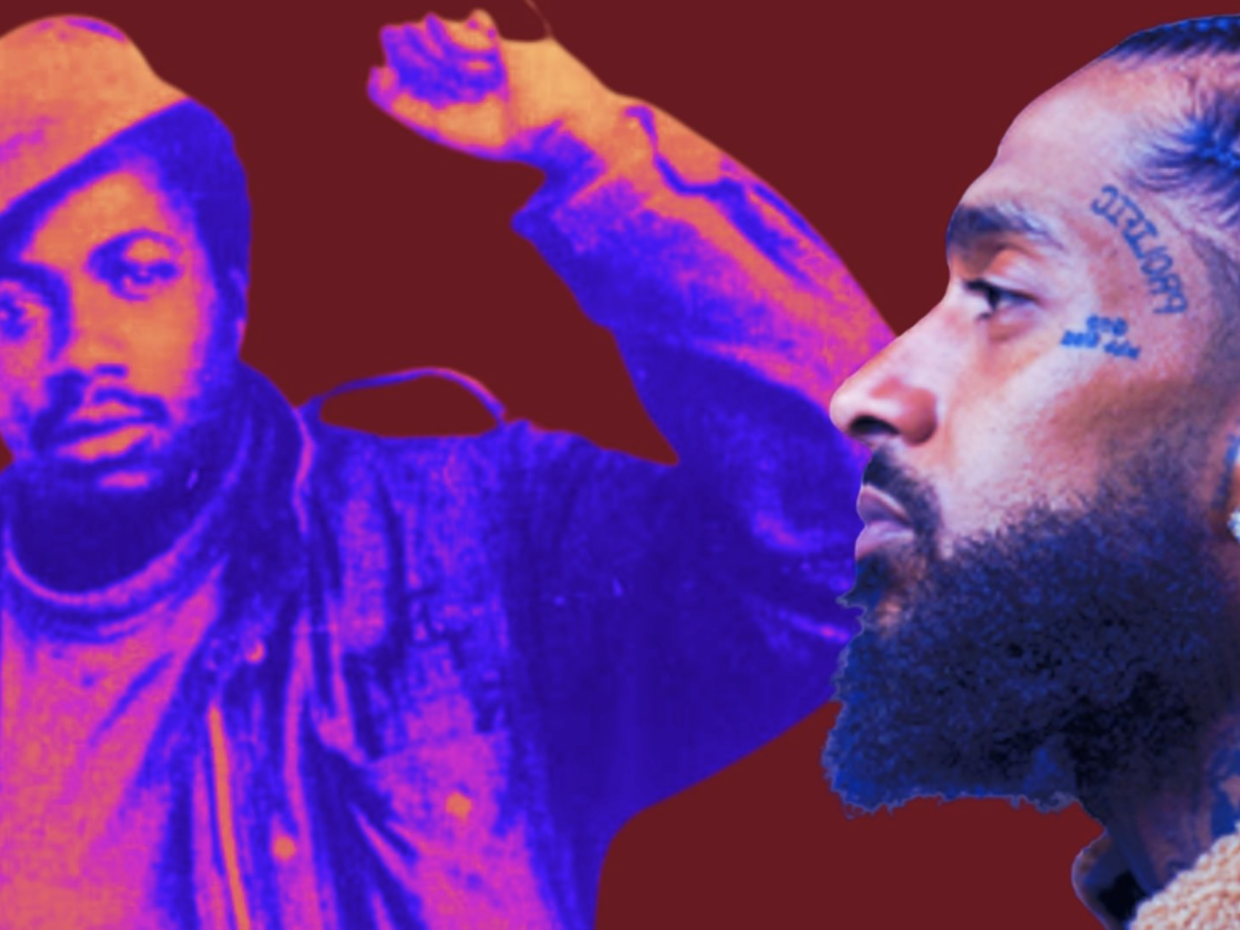This is the third-year anniversary of Nipsey Hussle’s death. Tina “Slauson Girl” Sampay examines the complexities and similarities between Nip and Black Panther Bunchy Carter.
The murder of Nipsey Hussle hauntingly mirrors the murder of not only Bunchy Carter, but the entire dismantling of Los Angeles Black Panther Party. His 2019 slaying also mirrors how the vision of community progress for Blacks in South Central was disrupted during the 1960s.
Follow me for a few.
It has now been three years since Nipsey Hussle (born Ermias Asghedom) was gunned down in front of his flagship clothing store on the corner of Crenshaw and Slauson Ave. His father migrated to the U.S from Eritrea and his mother is a Black woman of Creole descent but Nipsey Hussle was a child of L.A’s inner city, also known as “South Central.”
While many in the South Central/ South Los Angeles community continue to build upon Nipsey Hussle’s foundation of community investment and staying rooted locally, his death continues to represent a serious loss and has left a huge void in the community.
The inner-city communities of South Central, Watts and Compton in L.A. County have become highly popularized thanks to gangster rap, mainstream media, and Hollywood films. On a micro level, those forced to live within the confines of inner-city L.A. are dealing with the harsh realities of trying to survive, when they have been systemically and economically locked out.
Jan. 17. 2022 also marked 53 years since Alprentice “Bunchy” Carter (October 12, 1942 – January 17, 1969) was gunned down on the campus of UCLA, along with fellow Black Panther John Huggins.
At only 26 years old, Bunchy Carter was a larger than life figure in South Central L.A, often referred to as “Mayor of the Ghetto” or “that N*** from the Slausons.”
Carter was leader of the “Renegade” set of the Slausons which, unlike street gangs of today, were formed by Black men to protect Black communities from the racial violence of white groups in L.A. like the S#### Hunters.
Carter was also a member of the Fruit of Islam. He was paroled from prison in 1967 and would become a founding member of the Los Angeles Black Panther Party, where he served as Minister of Defense. He even recruited Tupac’s Godfather, Geronimo Ji Jaga Pratt, as a member when they were both enrolled at UCLA in 1968. One of Carter’s main focuses was organizing groups of men to observe the actions of the LAPD in South Central.
Early Nipsey Hussle songs could be considered “gangster rap” but you can trace his evolution as not only an artist, but a man seeking knowledge of self and someone who was eager to share that with those in the ghetto he grew up in.
The deaths of Huggins and Carter came after a disagreement with another Black nationalist group also at UCLA’s campus, the US organization. Much like the “street politics” that are rumored to have led to the death of Nipsey Hussle, both Huggins and Carter would lose their lives allegedly by another Black man.
Many will focus only on what is indeed a form of Black on Black crime, with less focus on the ways these Black men were knowingly, or unknowingly, pawns on the chessboard system of white supremacy. A system that seeks to undermine and destroy any real aspirations of Black liberation and self-determination.
Poverty and racism is a driving force of inner-city violence. When our Black male leaders and brightest minds continue to be stolen from Black communities, it severely handicaps our ability to escape these barriers.
Eric Holder has yet to have a trial for Nipsey’s murder despite several court appearances throughout the years. Delays are expected in the administration of justice for Black lives deemed as threats or disposable to the system.
Like Nipsey Hussle, Bunchy Carter was charismatic and embodied leadership qualities that allowed them to easily appeal to Black men in South Central. Their words evoked action and reflected the depth of their understanding of the world around them.
